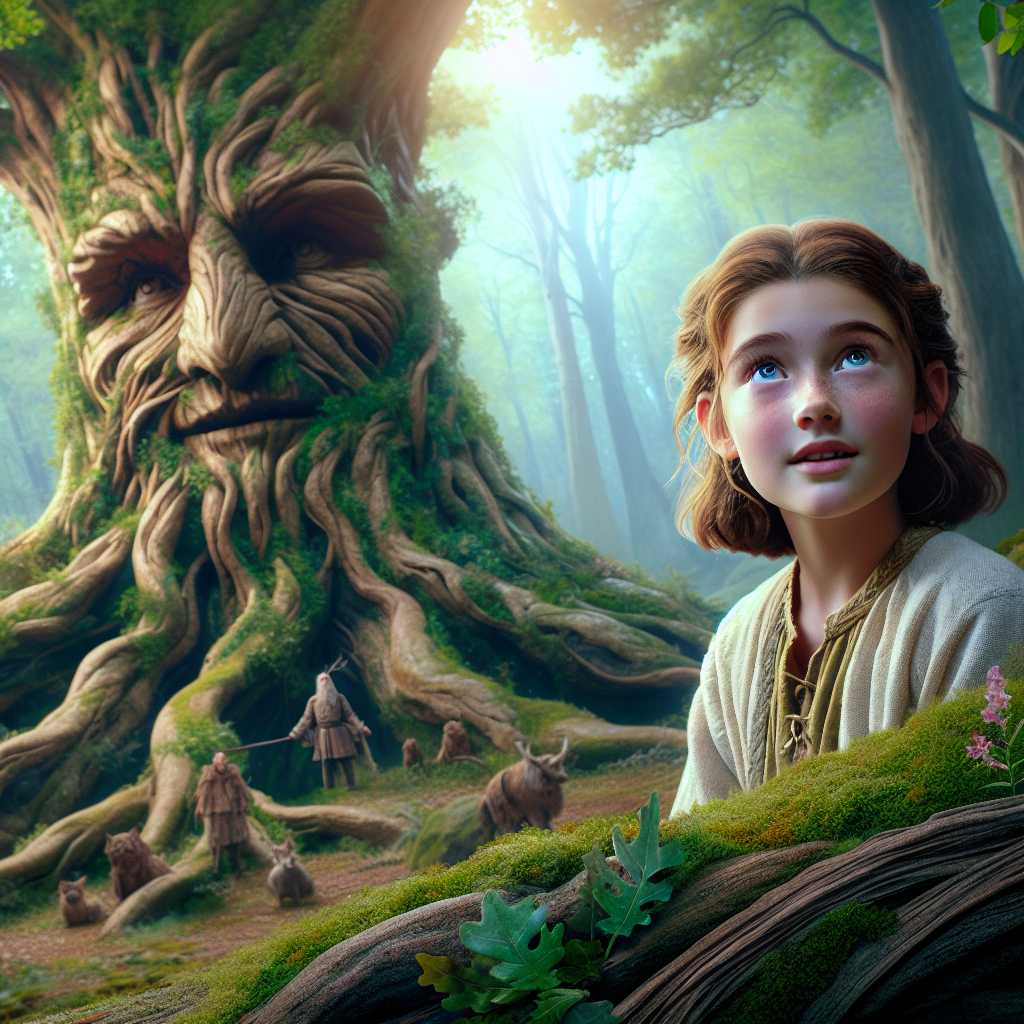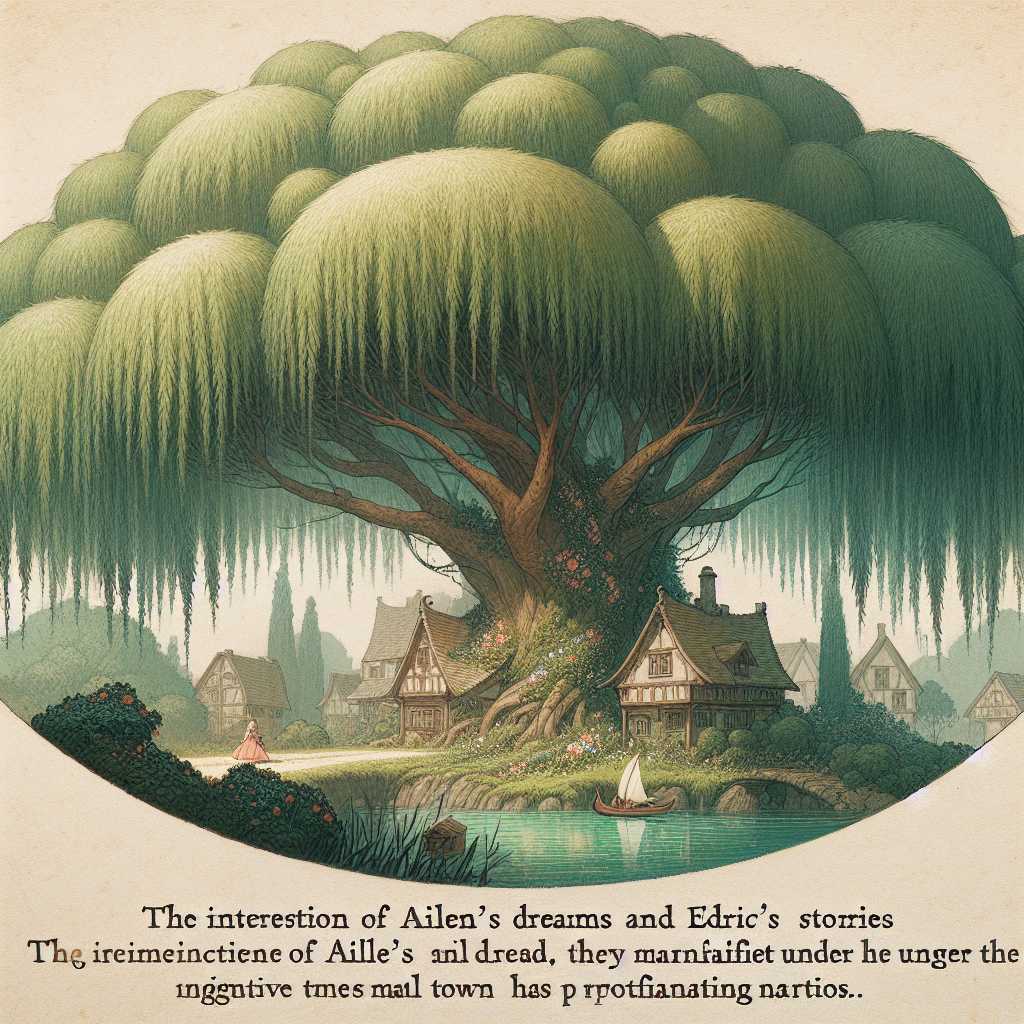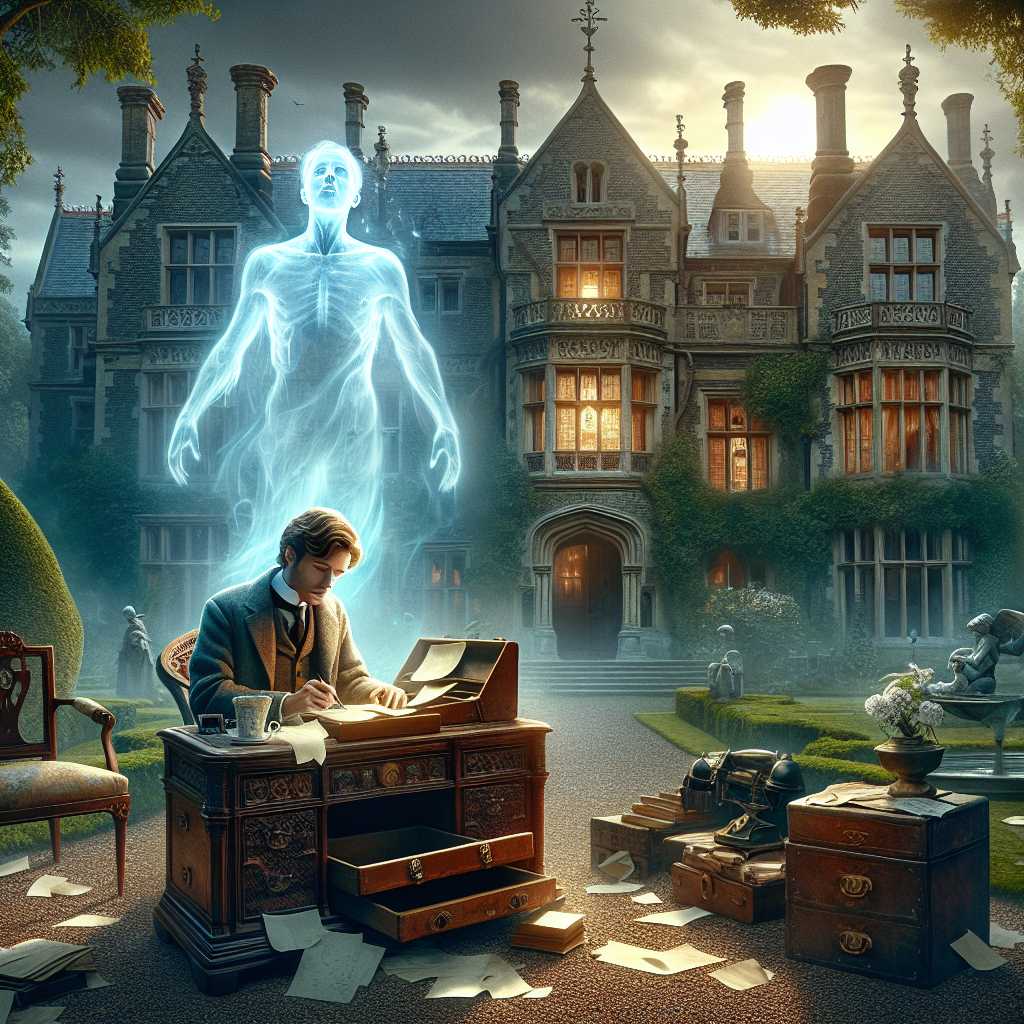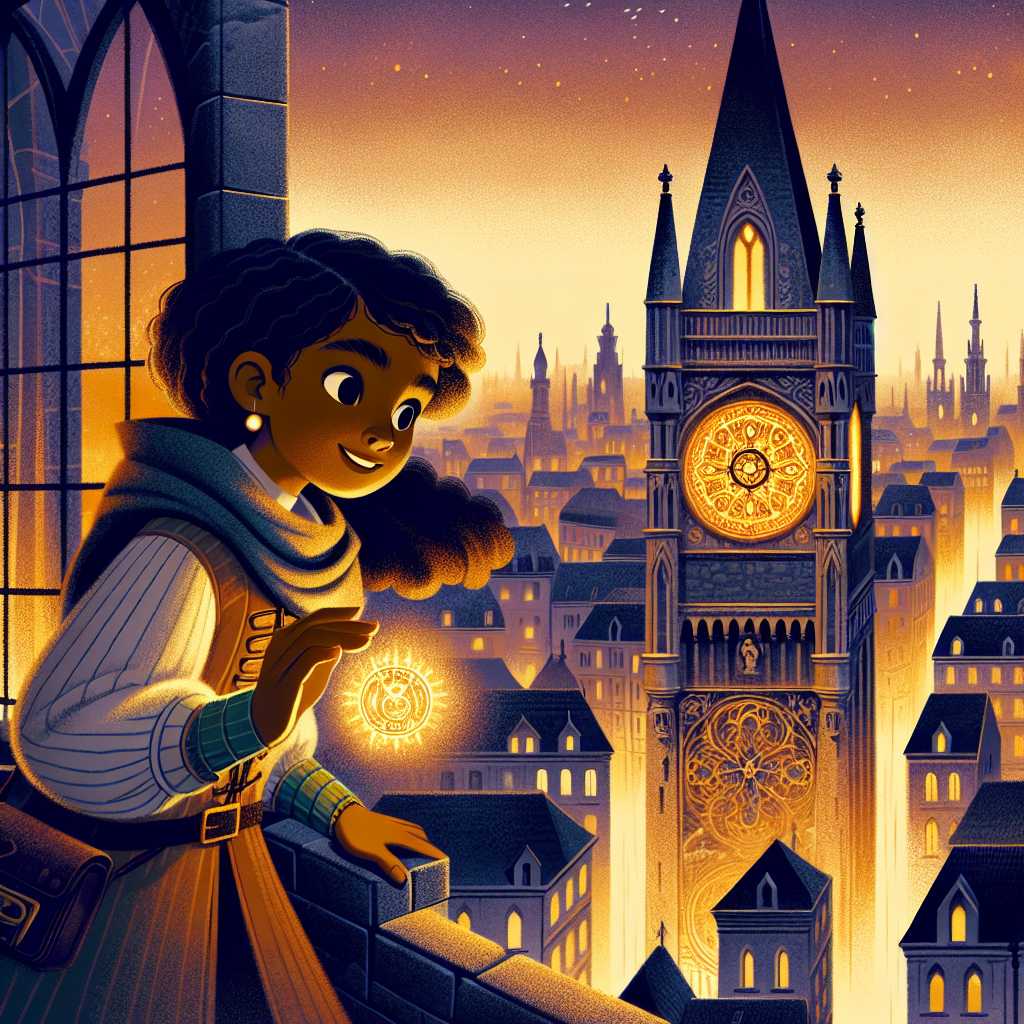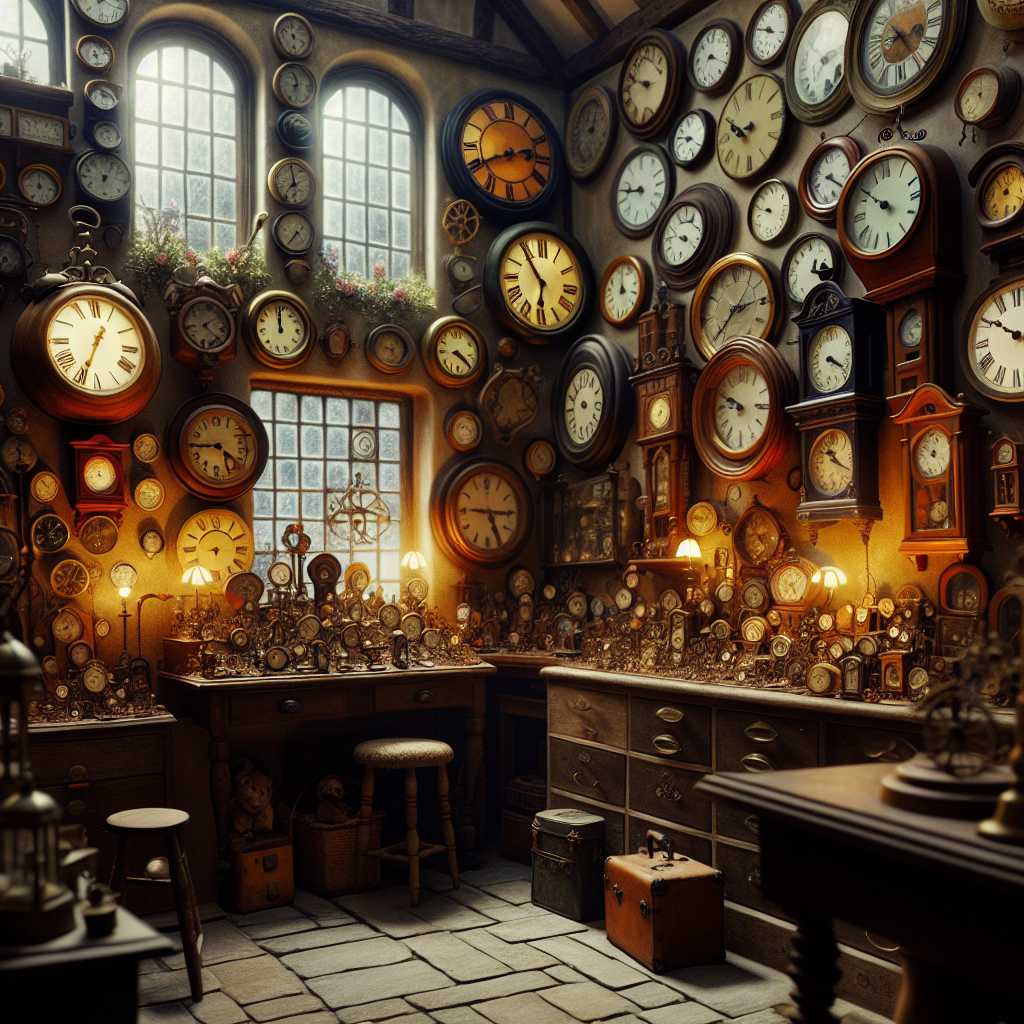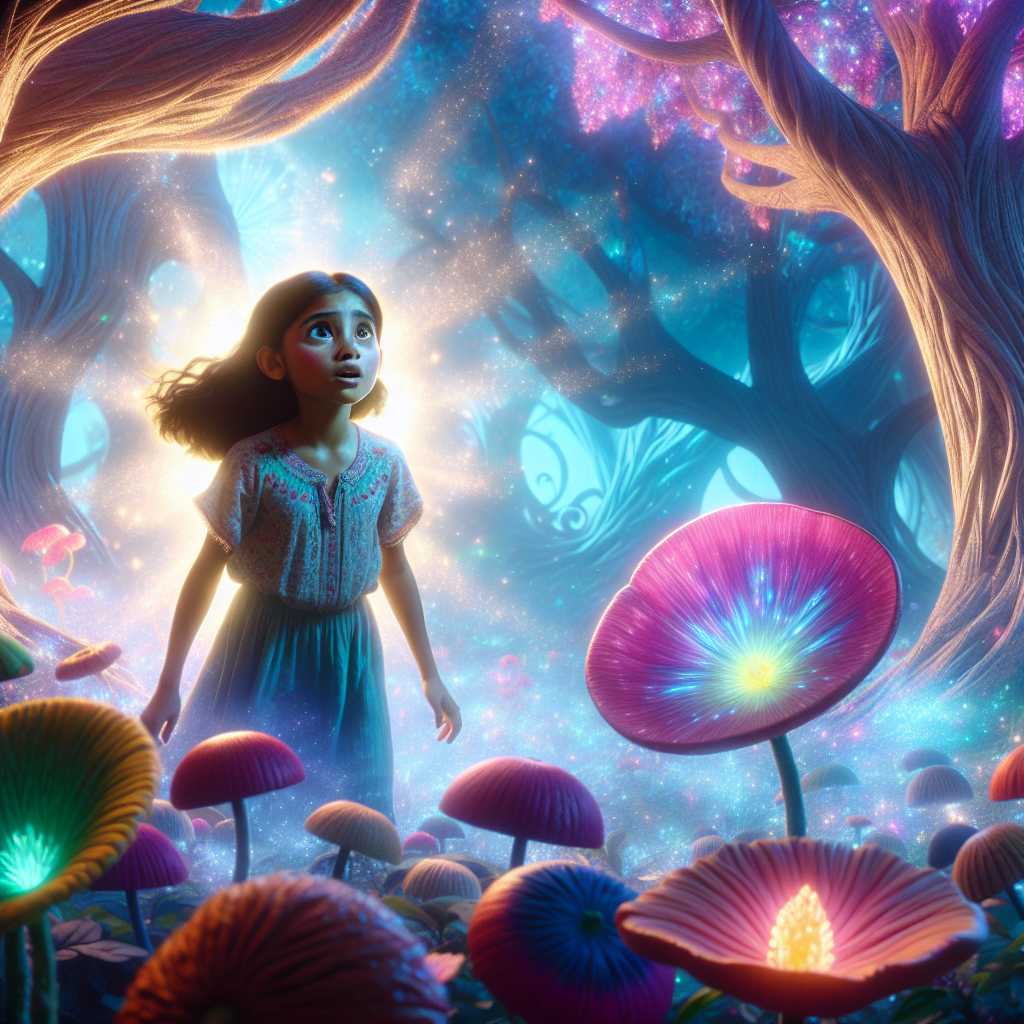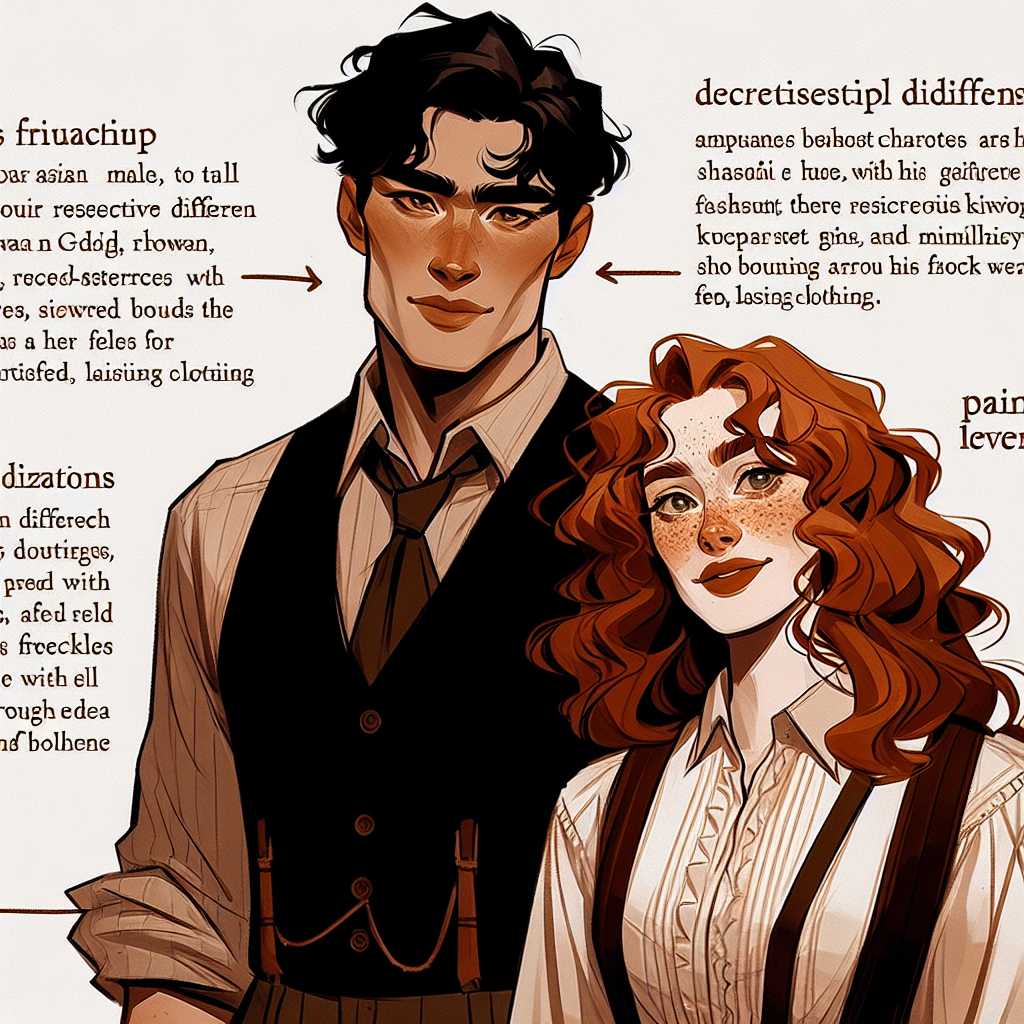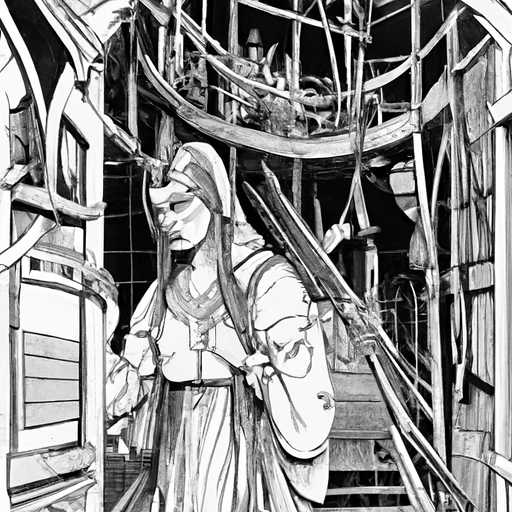
Once upon an ebon night, under a sky stripped of its lunar guardian, we found ourselves drawn to a chilling tale. A tale which unfolds in the desolate depths of Gormenghast manor, where every ink-black shadow whispered a frightful secret, and each timeworn stone echoed with ominous silence.
It all began with the Jester, a creature more specter than man. His pallid skin, as icy and opaque as moonlight, stretched tauntingly over high prominent cheekbones while a pair of dull crimson eyes dwelt within deep, hollering sockets. In the usual attire of outlandish motley and a pall of harrowing gloom, he was a creature reserved solely for the nightmares of the innocent and sane.
"Stay away from the Jester," the villagers would whisper amongst themselves. "His laughter is not of joy but of maddening madness."
The Jester lived alone, lofted in the North Tower that bore an uncanny resemblance to his disconcerting semblance. With each gust of the haunting night wind, the tower creaked and groaned like a forlorn beast, carrying eerie tales down to the slumbering hamlet beneath.
The manor bore a curse, whispered by the trembling lips of the ancestors. It was from the Jester's malicious mirth that the curse sprung to life like an extricated daemon. His laughter echoed through the winding hallways, coiling around corners, seeping through cracks and crevices, instilling an atmosphere of grim anticipation and mounting dread.
"His laughter means unrest," they would say, huddled together as the frosty night wind caressed the stone walls. "Unrest and despair."
A young maid, naive and tender-hearted, known as Lilith, served the grand manor. One day, drawn by a curious blend of dread and fascination, she ventured into the North Tower. The recognizably haunting echo of the Jester's laughter guiding her wayward steps.
The further she ascended the spiral staircase, winding its way up like an ancient serpentine creature, the colder and more oppressive the air became, as if the very atmosphere was attempting to deter her from the grim truth lurking above.
When Lilith finally laid her eyes upon the Jester, a chilling dread froze her heart. She watched as the Jester laughed into the emptiness, his maniacal mirth reflected on his deathly pallid face. His wild, hollow laugh was not one of humor or joy. Instead, it was a twisted concoction of sorrow, remorse, and screaming madness, echoing through the tower and down into the depths of her soul.
"I laugh, for laughter is my only solace," he rasped, his blood-red eyes never leaving the abyss beyond the window. "Laughter is my defence against this cursed existence."
Lilith felt herself being drawn to his voice, his eerie desolation, as if shadows were wrapping around her soul. A sense of dread overwhelmed her and she ran, the echo of his laughter trailing her, becoming part of her nightmares.
In the month following, the hamlet changed. Folks started laughing, not out of mirth, but as if compelled by some unseen, powerful force. A madness descended upon the village, as laughter, that terrifying sound where humor died a ghastly death, became the chilling anthem of their existence. The village was gripped with a hysterical phenomenon where all they could do was laugh till they cried, till they fell, and even then they laughed their chilling, maddening, monstrous laughter.
And as the village danced to the symphony of this maddening laughter, one could hear it, entwined in their horror, that distinctive, somber echo of the Jester's mirth.
"From laughter we are born, and into laughter, we descend."
So reader, beware. Should you ever tread upon a silent village under the new moon night, and the wind bears the echo of an incredible laughter, keep your heart guarded. For it may be Gormenghast, where a Jester's laughing curse still echoes under the moonless sky, a grim remnant of a horror tale of the manor and its pitiable occupants.



